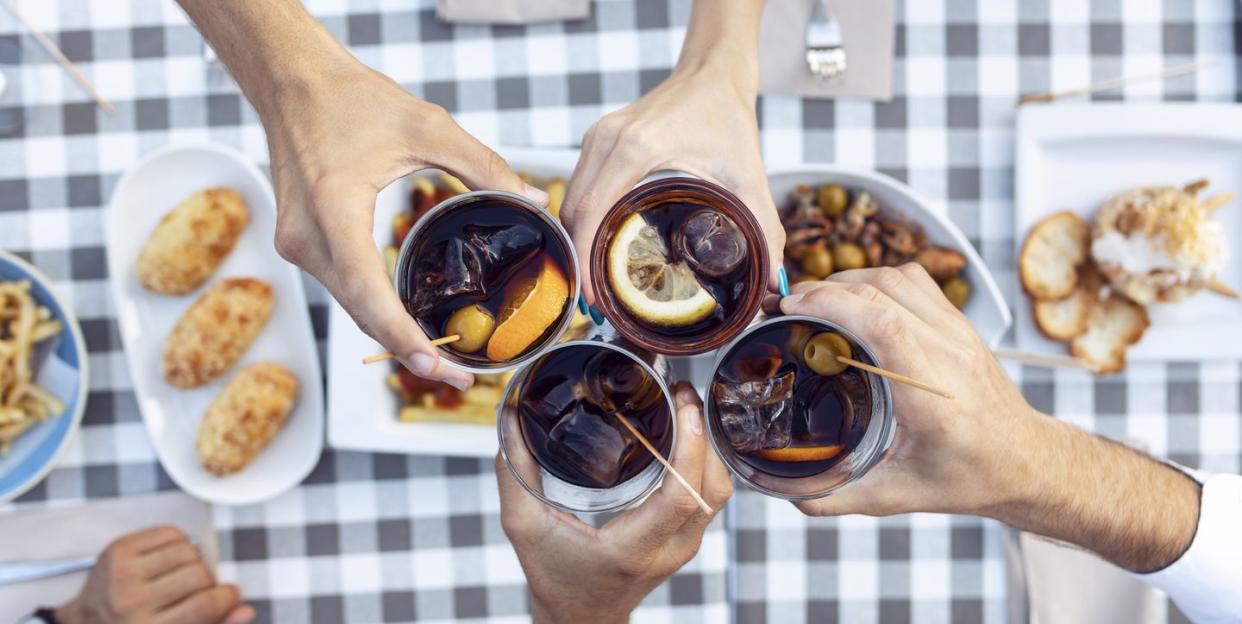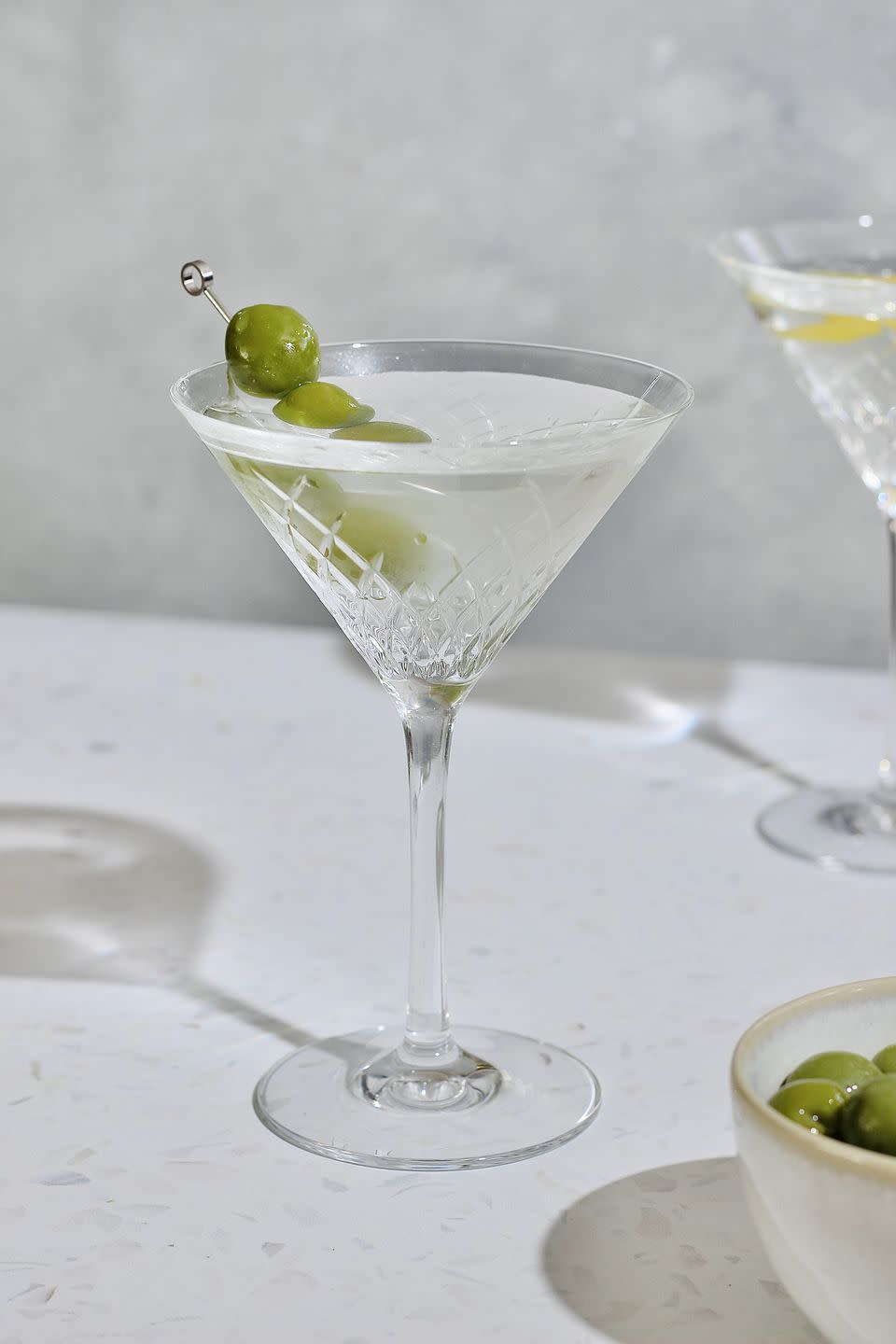Vermouth Cocktails Are Everywhere — But What Even Is The Stuff?

You're probably familiar with the likes of a negroni, martini or Manhattan cocktail, but do you actually know what it takes to mix one up? As in, are you familiar with one of *the* backbone ingredients required for lots of cocktails?
Enter, vermouth. A fortified wine that can singlehandedly take your drink from 0-100 in as little as a single measure.
What is vermouth?
Vermouth is a fortified wine, which is a fortified wine that has had distilled spirit added to it, to increase its ABV. Digging a little deeper, vermouth is then part of a subcategory of aromatised wines — fortified wines that have also been flavoured with herbs and spices.
Dry vs. sweet vermouth
Vermouth can be split into two classifications: dry vermouth; also known as white or French vermouth and sweet vermouth; otherwise known as red or Italian vermouth (don't be fooled by the phrase 'red vermouth,' the actual colour is more of a caramel brown).
Dry vermouth lends itself to being leaner, and more herbaceous in flavouring with less sugar. Whereas, sweet vermouth is considered richer, spicier and of course, sweeter.
The cocktail you're mixing will determine the type of vermouth you need. For example, a negroni requires something that can bridge the flavours between the additional ingredients (in this case, Campari and gin). Something with enough spice and weight to hold up against the other components, too. Which is why a sweet vermouth is the better pairing out of the two types.
On the other hand, if you're looking to make a classic martini, you're going to want to reach for something with a less-sugary taste, more bitter and herbal — a dry vermouth.

What is the purpose of vermouth?
Often used as a base for cocktails, the main purpose for mixing vermouth with say — a Negroni, is to balance out the flavours while adding an aromatic layer.
Its complex profile gives the impression of more than one ingredient, when in reality it's simply the versatility of vermouth.
What does vermouth taste like?
Vermouth is flavoured with aromatic herbs. Think cloves, cinnamon, quinine, citrus peel, cardamom, marjoram and more. On top of this, all vermouths are made using a bitter plant or root. This is what gives the alcohol its fundamental bitter taste.
Is there any alcohol in vermouth?
Yes — considered a moderately low-alc spirit, vermouth usually has a 15—18% ABV.
Can I drink vermouth straight?
You sure can! As much as vermouth is more commonly served within cocktails, you can also drink it straight over ice, too. We also like it with a splash of soda or bubbly for a simple yet sophisticated serve.
Is vermouth stronger than wine?
Vermouth is stronger than wine. This is because it's a fortified wine, and has been blended with additional alcohol (usually grape brandy). Vermouth has a 15—18% ABV, as apposed to unfortified wines that range from 9-14% ABV.
What can you substitute for vermouth?
Unfortunately, there aren't any like-for-like substitutes for vermouth. But on the off-chance of you running out, we recommend substituting dry vermouth for dry sherry, and sweet vermouth for port.
How do you store vermouth?
As vermouth is a wine and not a spirit, it oxidises over time. With that, it's recommended that you store vermouth in the fridge and consume the open bottle within three months.
What is a good brand of vermouth?
Like any sort of booze, there's tons of varieties and brands. So, here's a pick of our top five brands of vermouth: Dolin, Martini, Regal Rogue, El Bandarra and Noilly Prat.


